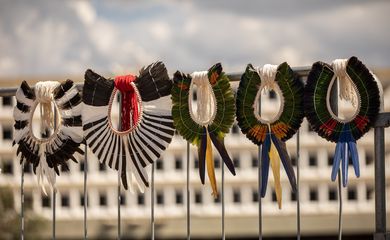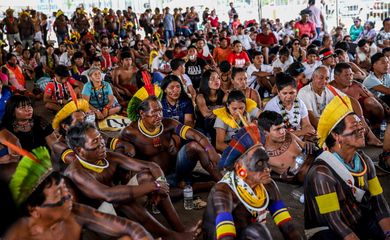Inter-American Court of Human Rights visits Yanomami indigenous land

Representatives of the Inter-American Court of Human Rights are currently in Boa Vista, Roraima state, for a five-day visit to Brazil. Part of the delegation is on an official mission to the Yanomami indigenous land to assess the protective measures implemented by the Brazilian state. These measures aim to safeguard the lives, health, and the integrity of the Yanomami people and their territory.

Until Wednesday (Oct. 25), Justice Nancy Hernández López, the Vice-President of the court responsible for overseeing human rights on the American continent, and Justice Eduardo Ferrer Mac-Gregor Poisot will visit local communities and meet with indigenous representatives and public bodies. Accompanied by the Court's Registrar, Pablo Saavedra Alessandri, and lawyer Rita Lamy, the group's primary objective is to determine whether Brazil has complied with the provisional measures that the Inter-American Court mandated in July 2022.
These measures, issued in response to cases the court deemed highly critical, are legally binding and require the immediate implementation of actions to prevent irreparable harm to threatened individuals or groups.
Among the eight measures is the requirement that the state "effectively protect the life, personal integrity, health, and access to food and drinking water of the members of the Yanomami, Ye'kwana, and Munduruku indigenous peoples." It also mandates the “prevention of exploitation and sexual violence against women and children” within these three ethnic groups.
The imposition of these measures stemmed from a request by the Inter-American Commission on Human Rights (IACHR), an autonomous entity of the Organization of American States (OAS) responsible for promoting human rights defense in the region.
In its letter to the court, the commission emphasized the increase in illegal mining within Yanomami indigenous land over the past year, as well as attacks, death threats against indigenous people, inadequate medical attention, and environmental contamination.
Hearings
Following their visit to the indigenous land, the Inter-American Court of Human Rights representatives will hold private supervision hearings on October 26 and 27 to assess compliance with the court's decisions. The location of these hearings has not yet been disclosed.
The hearings will examine cases where Brazil was previously condemned by the court. These cases include the murder of journalist Vladimir Herzog at the Army's Department of Information Operations (DOI-Codi) in São Paulo, in 1975, and the explosion at the Artificial Fires Factory in Santo Antônio de Jesus, Bahia state, in 1998, which resulted in at least 60 casualties, including 20 children and teenagers. Additionally, the hearings will address the murders of 26 residents in the Nova Brasília favela in Complexo do Alemão, Rio de Janeiro. These fatalities occurred during two police operations conducted between 1994 and 1995, with six of the victims being minors and at least three women enduring sexual violence during these operations.



